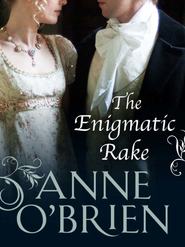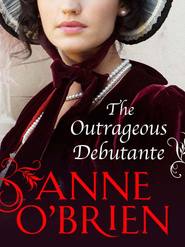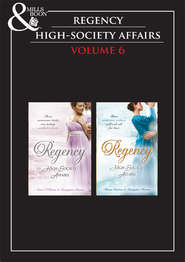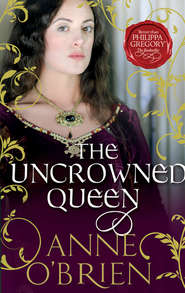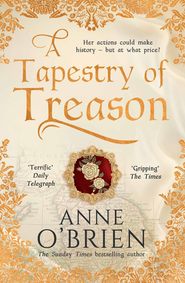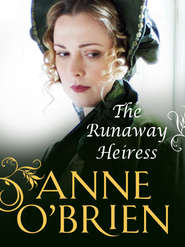По всем вопросам обращайтесь на: info@litportal.ru
(©) 2003-2025.
✖
The Disgraced Marchioness
Настройки чтения
Размер шрифта
Высота строк
Поля
On a bright morning Lord Henry, this time alone, made a private and intensely painful visit to the church of St Mary the Virgin, which served the spiritual needs of the estate and the small village of Burford. There in the graveyard, dark head bowed, he stood beside a new grave, the turned earth still raw, although now softened with a faint sheen of spring grass. A simple plinth had been erected, its clean lines topped by a classical urn. The words and dates that recorded the life of his brother were sharply incised, all very proper and tasteful, but telling nothing of the vibrant life of the young man who lay beneath the earth in untimely death. Sorrow clawed at Henry’s heart, regrets flooded his mind. It felt, as the sun warmed his skin and the dappled shadows from the elm trees flirted playfully across the mown grass, that he had lost a part of himself, which it would never be possible to recover. With a gentle finger he traced the letters. The depths of the tearing grief that stopped his throat and stung his eyes shocked him as he damned the monstrous twist of fate that had robbed his brother of his life.
But at least Thomas had left a son, to carry on his blood line and the family name, so that there might always be a Faringdon living at Burford House. It was some comfort, Henry supposed, as he brushed the smooth curve of the urn. It must be.
As he would have turned away, his loss in no way assuaged, his attention was drawn to the fresh posy of primroses arranged at the foot of the plinth.
Eleanor’s work? Henry hoped so. His lips curved with a cynical edge as he remounted his horse, turned his back on the calm tranquillity of the dead. Whatever motives had driven Eleanor to reject his own love, to send her headlong into marriage with Thomas, he hoped that in the end she had cared for his brother more than a little.
At the beginning of the second week, the family gathered in the dining room for a late luncheon. During the first course of a range of cold cuts of meat, Lord Henry took the unusual opportunity to address himself directly to Lady Burford across the table.
‘You should know, ma’am, that I have arranged passage for America. I shall leave next week.’
‘So soon?’ Eleanor’s gaze moved from her plate to his eyes and she lifted her napkin to lips gone suddenly dry.
‘Why not?’ His face held no warmth, but perhaps a little surprise in the consternation that he read in Eleanor’s momentarily unguarded expression. ‘My business will not prosper in my absence, whereas you do not need my help here. Nick is more than capable and far more interested in developing the land than I. And Hoskins has his finger on all the legal niceties. The inheritance and your jointure are secure, ma’am. There is nothing to keep me here.’
‘Very well. I … we shall be sorry to see you go, of course.’ Her tone was low with no inflection but, to his disappointment, her gaze now quickly fell before his. She rarely allowed herself to look directly at him so that he had presumed her uninterest. And yet he realised, beyond any sort of logic, that he had been hoping that she would care. It seemed from her reply that she did not. He allowed himself a sardonic smile at his foolishness. If Eleanor had been prepared to reject his offer two years previously in the face of better prospects, she would hardly show any concern for his presence—or his absence—now.
But, on hearing Hal’s announcement, Nell’s heart had fallen to the region of her fine kid slippers, her nerves skittering like mice in an underdrawing. She did not want him to go. She was afraid of him, of her reactions to him, but she did not want him to leave Burford Hall.
Mrs Stamford took up the conversation, breaking in to her daughter’s distraught train of thought. ‘I am sure that life in America has much to entice you to return, my lord. And I expect there are friends who will be missing you.’
‘It has indeed. And, yes, there are some who will have missed me.’
Eleanor heard and came to her own conclusions. Of course. She should have realised. Her heart sank even lower, if that were possible. There was nothing to hold him in England. And there would be a lover waiting for him there, a woman who loved him and fretted for his return. A woman who was without doubt beautiful and who enjoyed the intimate attention of his mouth and hands. Her own hands clenched on her knife and fork. Of course he would wish to go back. How ridiculous to think that he would even consider her own needs. Not that she had any true idea of what they might be!
She put down the knife and fork, the slices of chicken un-tasted, her appetite suddenly gone. And began a detailed conversation with her mama with respect to a planned visit to a neighbouring family during the afternoon. Should they take the landaulet or the barouche? And what was the possibility of inclement weather?
And Hal bitterly accepted that, yes, there was nothing to keep him at Burford Hall.
The plates from the cold collation had hardly been cleared from the table and dishes of fresh fruit and cheese set out when Marcle entered to approach Lady Burford.
‘My lady. There are a lady and gentleman come here.’ He frowned his disapproval of such lax adherence to acceptable visiting hours.
Eleanor raised her brows a little in some surprise. ‘Now is not a very convenient time, Marcle. Perhaps you could show them to the red parlour and supply them with refreshment. We shall be finished here in half an hour.’
Marcle persisted, if reluctantly. ‘The gentleman apologises for the unwarranted interruption, but claims urgent business. Of a highly personal nature, which requires immediate attention from your ladyship.’
‘I see. Who is he? Do we know him?’
‘Sir Edward Baxendale, my lady.’ Marcle presented a neat visiting card on a silver salver. ‘And Miss Baxendale, his sister, I believe.’
Eleanor looked at the tasteful lettering on the card and then across the table to Nicholas, who was in deep and detailed conversation with Henry about the merits of a favourite hunter. ‘Do we know a Sir Edward Baxendale, Nicholas? Does he live locally? I think I have not heard that name, but he might be one of the hunting fraternity. In which case you will be acquainted at least.’
Nick shook his head. ‘There is no one of that name who lives in this part of the county, I am sure.’ He looked to his brother for confirmation. Henry shook his head, uninterested.
Eleanor decided. ‘Very well. Since it is an urgent matter …’ She nodded to her butler. ‘Show them in, if you please.’
Within minutes, Marcle ushered the visitors into the dining room.
‘Sir Edward Baxendale and Miss Baxendale, my lady.’
The gentleman was a man in his early thirties, perhaps a little older than Hal, of medium height and stocky build. Eleanor gained a general impression of quiet elegance and understated fashion in his clothing and appearance. He was without doubt a gentleman of some means. The lady who accompanied him was younger, slight of build, clothed in black as if recently bereaved, but again with a distinct air of fashion. Behind them came a young woman, clearly a companion or governess from her plain and serviceable dress, carrying a young child who squirmed to be set on his feet.
The gentlemen bowed. The ladies curtsied. Marcle hovered with interest in the background.
‘Well, Sir Edward. What is this personal business that cannot wait?’ Eleanor smiled to put the visitors at their ease. ‘Perhaps we can offer you a glass of wine. If you would care to sit—’
‘Forgive me, your ladyship, my lords.’ The gentleman bowed to the assembled company, face grave, politely deferential but firm. ‘I would not normally arrive on your doorstep without due notice. But this is not a social visit. Time is, I believe, of the essence. And what I have to say will certainly, I fear, be distasteful to you.’ He allowed his gaze to linger on the faces around the table, his own face and voice strained with compassion.
‘Then in what way can we be of help?’ Eleanor approached the little group, now with some concern, noting that the young woman was nervous and kept her eyes fixed on Sir Edward, as if for guidance or reassurance.
‘I fear that we are come here in some way under false pretences. This is my sister, Octavia.’ He took the hand of the young woman beside him to lead her forward. ‘She was Miss Baxendale. She is now, I must inform you, Octavia Faringdon, wife of the lately deceased Thomas Faringdon, and has been so for the past three years. She is the lawful Marchioness of Burford. And this child—’ he indicated with a glance behind him ‘—is their son, John. Heir to the title and Faringdon estates. I believe, madam, sirs, that we have much to discuss.’ Sir Edward bowed again and waited to see the impact of his declaration.
The silence that hung in the room was painful in its intensity, as enveloping as the cloud of dust motes that drifted around them in the sun’s rays.
Until Mrs Stamford grasped the edge of the table and pushed herself to her feet in outrage. ‘A marriage? Thomas’s wife? I have never heard such disgraceful nonsense in all my life!’ She glanced fiercely at her daughter. ‘If I were in your shoes, Lady Burford, I would have nothing to do with this scandalous claim. It is my belief that it is merely a charade on the part of these … these people, to get their hands on the Faringdon fortune.’ She paused to cast a look of pure disdain towards the pair, her lips curled in what, in a less well-bred lady, would have been seen as a sneer. ‘If I were you, I would have Marcle show these impostors the door, on the instant!’
The company, robbed of any desire for further social platitudes, or to sample the fine array of cheese and fruit set out on the dining table, repaired immediately to the blue withdrawing-room in stunned and uncomfortable silence.
‘Perhaps you would be so good as to explain your astounding claims, Sir Edward,’ Lord Henry requested with remarkable calm.
The gentleman was now seated on the silk-covered sofa, his sister beside him, palpably uncomfortable with hands clasped tightly in her lap. Their companion chose to take the child into the window embrasure, away from the heart of the crisis, to look out at the park and gardens and be entertained. Eleanor had lowered herself to an oval-backed chair as if she did not trust her legs to support her. Nicholas stood behind her, Mrs Stamford took a seat at her side. Lord Henry, either deliberately or through natural inclination, took a position of authority before the fireplace. When thoughts and impressions ran riot, spiking the air with nerve-jangling tension, he took command in a cool, unemotional fashion and broached the shattering development.
‘We would all be grateful if you would explain the circumstances of this supposed marriage. My family, as you must be aware, is ignorant of its very existence.’
‘Of course, my lord. I can understand why you might consider it all a matter of pretence and artifice. This is not an easy situation and not one that I would naturally seek. Forgive me, my lady.’ Sir Edward bowed his head to Eleanor, clear blue eyes guileless and full of compassion. She watched him with a mind frozen in disbelief, the fragile skin stretched over her cheekbones, tight with fear. It was as if his voice came from a great distance, but anguish gripped her heart at what he might say.
‘My sister came out four years ago with a Season in London,’ he began to explain. ‘She was very young, but my mother was alive then and wished to see her daughter well established. Octavia met Burford during the Season. And then later in the summer months when we spent a few short weeks at Brighton. It is very simple. They met and fell in love, as young people may do on such occasions.’ He smiled understandingly down at his sister, who continued to sit, head bent, fingers worrying at her reticule. ‘And they were married, quietly, in Whitchurch, the village where we have our small estate. Their child, John, was born there the following year.’
The information, clearly and lucidly delivered, dropped into the atmosphere as hollowly as pebbles into the depths of a well. Mrs Stamford found herself lost for words.
‘But why was it not made public at the time?’ Lord Henry frowned as he weighed the details. ‘Why did we not know of this marriage? Why did my brother not bring the lady home as his bride? I can think of no reason why he should need to keep this marriage a secret from his family and the world.’
‘I know not, my lord, but Burford spoke of family disapproval. We were not to know the truth of it.’ Sir Edward lifted his hands in acceptance of a difficult situation and the lowered them to cover those of his sister in warm comfort. ‘My sister presumed that your family would not accept his marriage to a lady of so little social consequence. Our family is respectable enough, of course, but we have never aimed to the heights of the haut ton. And to enter into marriage with the Marquis of Burford was beyond her dreams, even as a young girl who did not know the ways of society.’
Henry turned his attention to the lady who sat silently, eyes on her clasped fingers. ‘Is this so? Did Thomas indeed marry you, then hide you away in—where was it?—Whitchurch?’
‘Yes, my lord.’ She raised her eyes, not flinching as they met such stern questioning. ‘Thomas and I … we fell in love and he wished to marry me, in spite of his family, he said. So we should keep it secret, he said, and I agreed. I was very young, you see, and knew no better.’
‘Then why did you say nothing when my brother entered into a second marriage with … with Miss Stamford?’ Incredulity coloured Henry’s question. ‘Surely it is beyond belief that you should simply accept such a development.’ And why in heaven’s name would Thomas have done such a thing?
‘That was a mistake on my part, I confess.’ Sir Edward came to his sister’s rescue, taking her hand again and holding it in a warm clasp. ‘My sister was very foolish and, I do not hesitate to say, is easily led. She was given to understand that his marriage to Miss Stamford—’ he inclined his head towards Eleanor with grave respect ‘—was a matter of necessity, desired and encouraged by his family. Burford asked that Octavia keep the matter of her own marriage quiet in return for a substantial annuity settled on herself and the child. I could not persuade her otherwise. She insisted on doing what Burford wished. But now she has seen that much is due to her and wishes to make everything plain.’ He smiled down at the young woman who coloured prettily and returned his clasp, nodding her agreement.
‘But if he loved you and had married you, regardless of … of the differences in your social rank,’ Eleanor spoke at last to the fair lady, ‘and since you had presented him with a son and heir—why would my Lord Burford consider the complications of a second marriage to me? It does not make any sense! Most particularly as—’ She closed her lips into a thin line, unable to continue. Particularly as my birth and the social status of my own family is no better! It simply did not make any logical sense.
‘My lady …’Sir Edward hesitated, all deference and concern. ‘I cannot tell you … Perhaps you are the only one here who might know the reason for such an unfortunate decision.’
‘But why wait to make any claim until now?’ Mrs Stamford interrupted, impatient as she pinned the fair couple with an eagle stare, clearly not believing a word of Sir Edward’s explanation. ‘My lord has been dead for four months. Why did you not speak on hearing of his death? It has been no secret, after all.’






